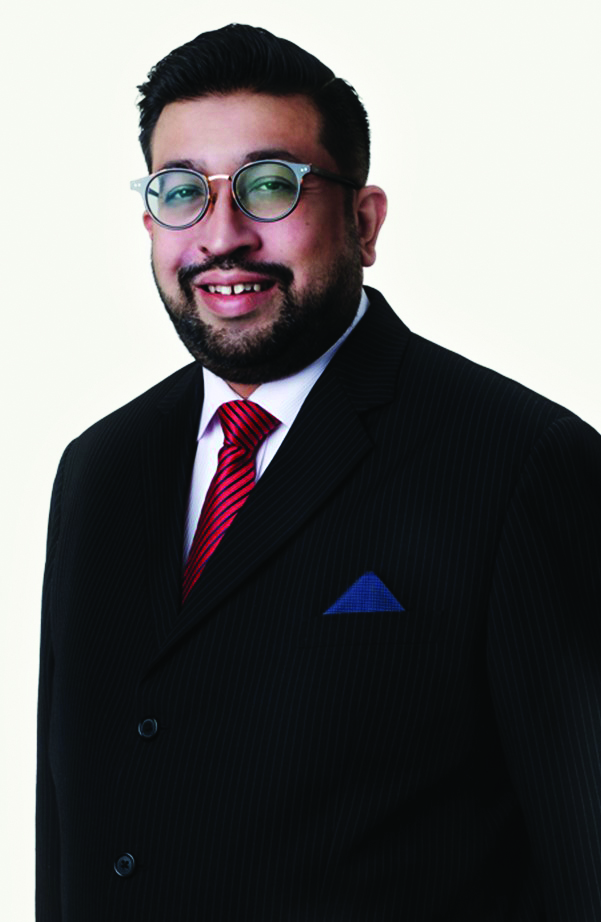Singapore’s Oon & Bazul, a midsize law firm, decided to take the unprecedented move recently of making a nonlawyer an equity partner at the firm
Founded in 2002, Oon & Bazul is a 14-partner midsize law firm in Singapore’s highly competitive legal market, with strengths in shipping, insolvency and disputes. In early December 2020, however, the firm announced something particularly eye-popping: It had made Abdul Malik, the firm’s general manager and head of business development — and most notably, a nonlawyer — an equity partner in the firm.
This was an unprecedented move. Nonlawyers do not usually join a law firm’s equity partnership in Singapore, with the exception of a handful of patent attorneys and economists, even though regulations in the city-state do allow for it.
Check out all the articles in the latest issue of Forum magazine.
Malik’s background itself is a rarity among law firm partnerships. He previously worked at Microsoft, CPA Australia, New Zealand Trade and Enterprise, and the Energy Market Authority of Singapore, where he was a senior principal analyst in the authority’s industry development arm. At Oon & Bazul, Malik manages a team of 12 professionals who assist him in the firm’s financial, information technology, human resources, marketing and business development functions.
Malik is not new to the legal industry, however. Between 2012 and 2017, he served first as director of business development, marketing and communications, and then as chief operating officer at RHTLaw Taylor Wessing, the Singapore associate firm of London-based international law firm Taylor Wessing before the two entities parted ways last year.

With the blessings of Singapore’s Ministry of Law, Malik was added to Oon & Bazul’s partnership roster, becoming one of the firm’s five equity partners. Today, Malik sees himself as a bridge between Oon & Bazul’s managing partner, Bazul Ashhab, and the “strategies that need to be implemented.”
“I feel a deep sense of pride in being invited to own a stake in a leading law firm,” Malik says. “It is an affirmation of the job that I have been doing, but more importantly I must thank Bazul for his leadership and forward-thinking philosophy that have led to this appointment.” Malik says he will also be heavily involved in advising on the firm’s vision going forward with the goal of growing to be one of the Top 10 largest law practices in Singapore and the region.
Considering some of the factors the firm looked at in inducting Malik into the partnership, Bazul says he has always been of the view that change and transformation were greatly needed in the legal space, and that an outsider, particularly one with strong business acumen, would be able to assist the firm more effectively. “Change is best introduced and managed if nonlawyers get a bigger say in what the commercial man or woman wants from their lawyers,” Bazul says. “Once the change has been conceived, it is a lot easier if that is managed by someone who has ownership.”
Bazul emphasizes that ideas “necessary to facilitate” growth will be implemented more effectively and quickly with Malik taking ownership. “With the COVID-19 pandemic, every firm’s place in the legal space has been reset,” Bazul says. “The firm that can take advantage of opportunities or mitigate efficiently the problems will not only succeed but also substantially propel its growth.” With Malik and his team taking over the changes that were required to operate remotely, there was no drop in productivity, he says, adding that the firm was able to retain nine of its trainees, which was rare in the face of other firms cutting their retention during the pandemic. “We also recently received the Human Capital Partnership award by Singapore’s Ministry of Manpower for our exemplary human capital development practices.”
The times they are a-changin’
As Bazul correctly pointed out, the legal industry in the Asian region has been seeing a sea change over the past few years, and the COVID-19 pandemic has only quickened the process. Firms now need to think outside the box in terms of how best to serve their clients, vanquish the hordes of competitors and retain top-shelf talent, regardless of whether they are lawyers or nonlawyers.
And yet, even a forward-thinking country like Singapore has a legal industry that struggles to deviate from conventional wisdom. “The unchallenged view is that profits of a law firm are contributed by lawyers, and therefore only lawyers are entitled to share those profits,” says Bazul. “However, significant contributions of a law firm are also made by nonlawyers who contribute to the profits. There needs to be a recognition and ability to assess those profits and motivate those who are contributing with profit-sharing opportunities and a bigger say in how the law firm is run.” Indeed, Bazul says he remains hopeful that other law firms in the region and elsewhere will follow suit. “The continued success in the growth of the firm as well as our bringing in other nonlawyers into ownership positions will lead to other firms emulating us.”
The firm that can take advantage of opportunities or mitigate efficiently the problems will not only succeed but also substantially propel its growth.
Malik is of course an experienced business development and marketing professional, but there are other types of allied professionals who would be potentially good candidates to join law firm partnerships as well. For example, Bazul says he believes that the head of human resources would be a good choice, too. “Resource management will be a critical factor in determining how well the firm succeeds,” he says, adding that a human resources leader would “be trained in the psychology of managing the resources of the firm to produce the most productive output and curate a system where everyone’s diverse strength is harnessed to ensure success for the firm.”
That said, such a move will probably play a part in a broader discussion on law firm structures of the future in Singapore or other Asian jurisdictions; in particular, how law firm structures are gradually evolving to make the most of available talent, either legal or nonlegal.
“I believe the advancement of technology and the changes in the way people are educated in school, will lead to a system of promoting into leadership those who can contribute to the growth of the firm over those who have seniority purely because of the number of years,” says Bazul, noting that this will include a “steep learning curve for younger lawyers as well as nonlawyers having a bigger say in the way law firms are run.”
The result of all this will be a “greater mutually respectful partnership between lawyers and nonlawyers working as a team to take the firm to greater heights,” he says.






